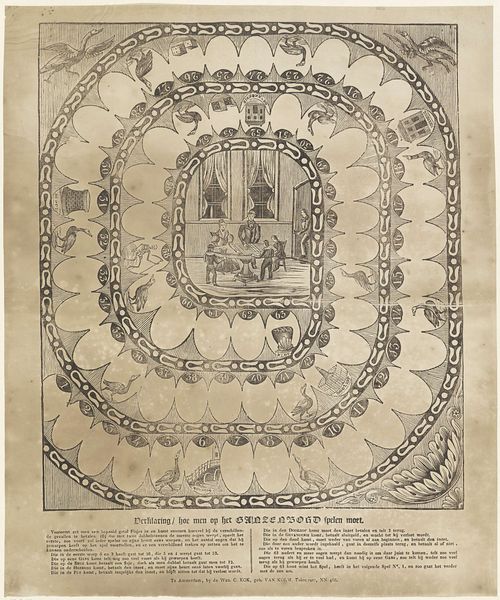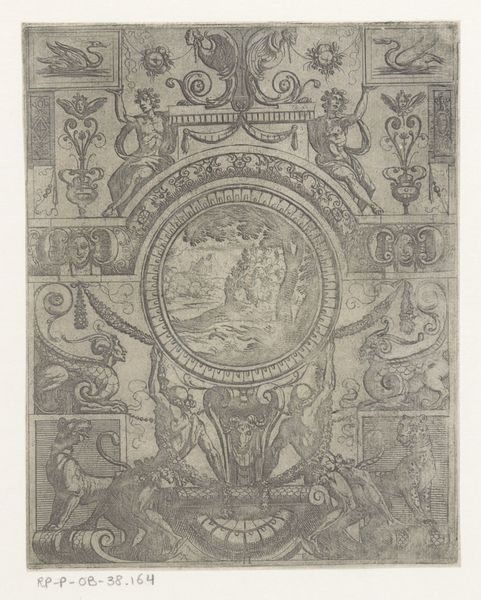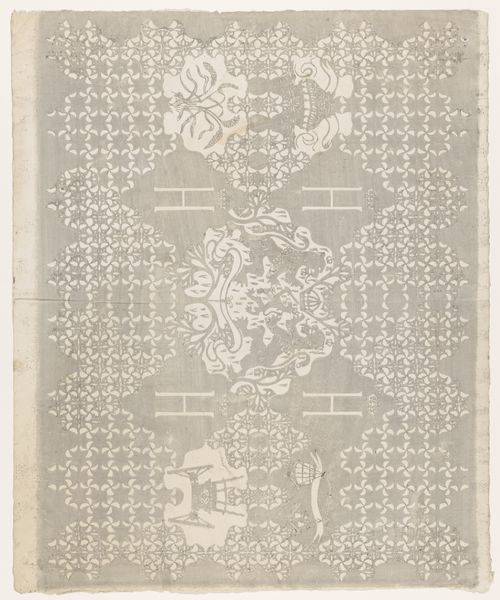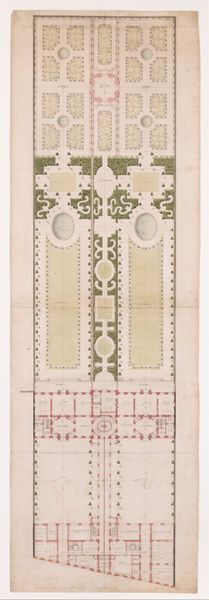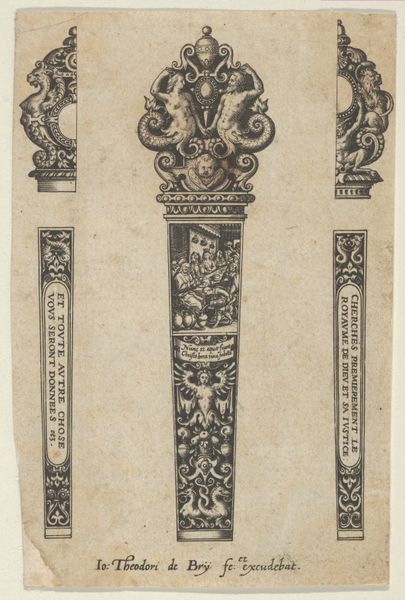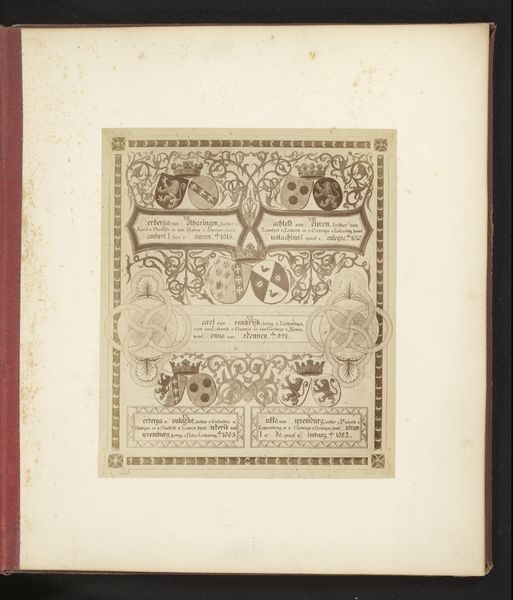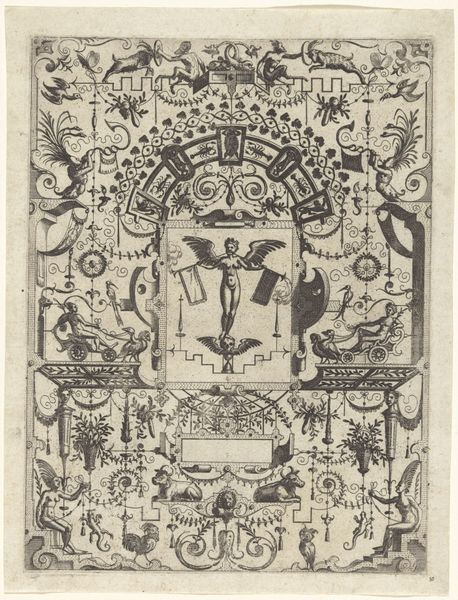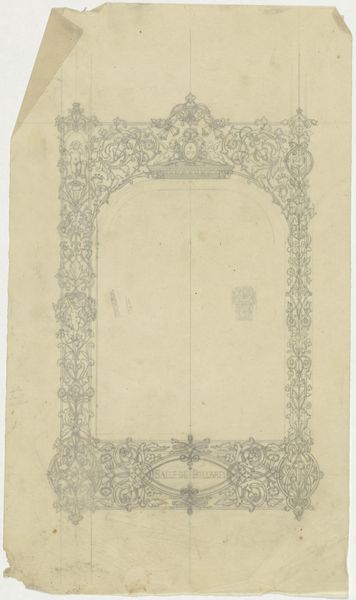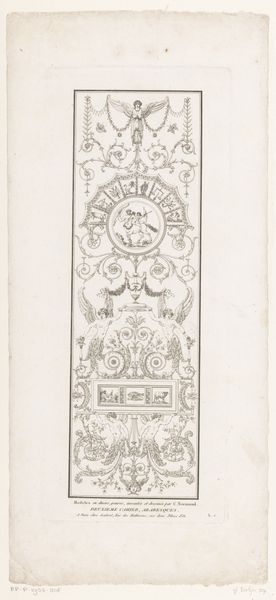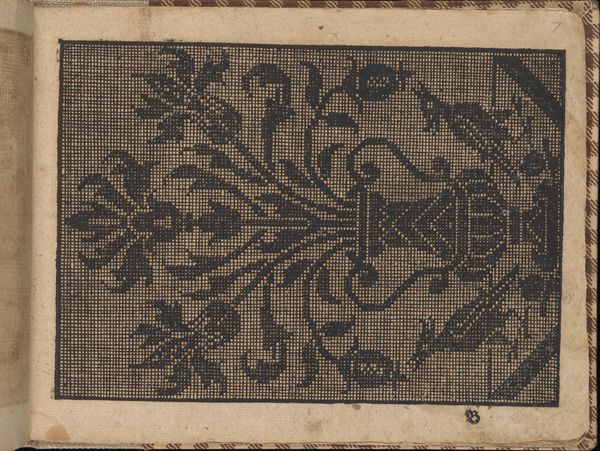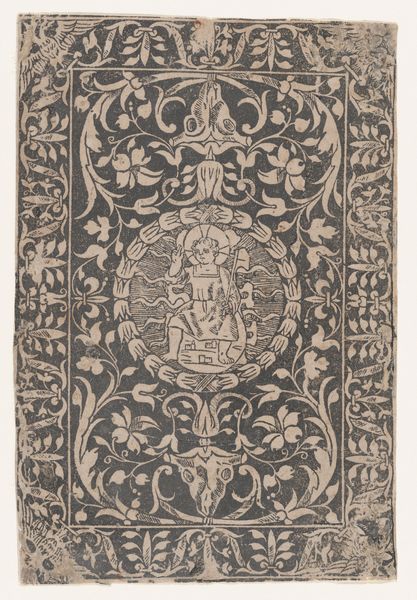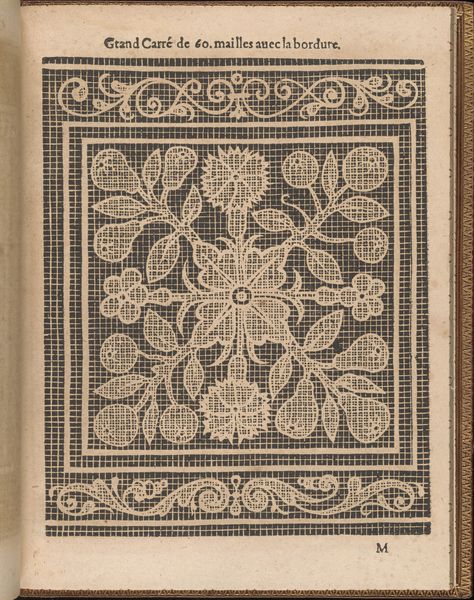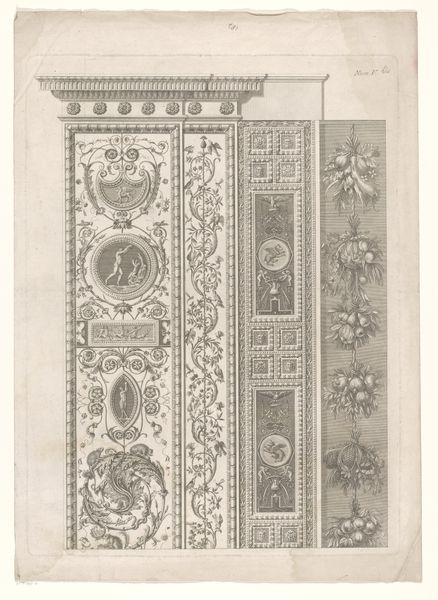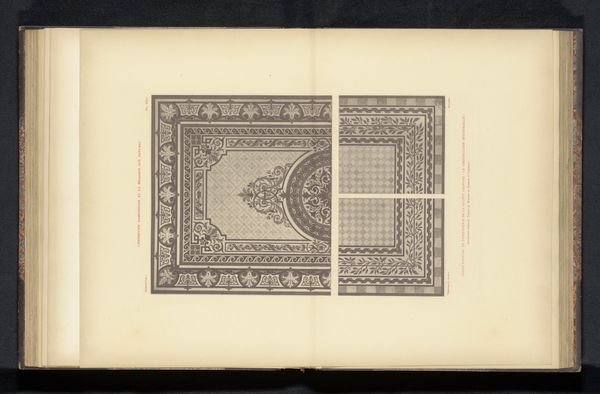
Print in Honor of Juan Antonio Vizarrón y Eguiarreta, Archbishop of Mexico and Viceroy of New Spain 1725 - 1735
0:00
0:00
drawing, print, paper, engraving
#
drawing
#
baroque
# print
#
paper
#
organic pattern
#
pattern repetition
#
history-painting
#
decorative-art
#
engraving
Dimensions: Sheet: 30 1/8 × 23 in. (76.5 × 58.4 cm) Mount: 31 3/4 × 23 3/4 in. (80.7 × 60.3 cm)
Copyright: Public Domain
Curator: Here we have a rather grand-looking print, made sometime between 1725 and 1735. It's entitled "Print in Honor of Juan Antonio Vizarrón y Eguiarreta, Archbishop of Mexico and Viceroy of New Spain." Editor: My first thought? Organized chaos! All that ornamentation crammed together feels both celebratory and slightly claustrophobic, like being cornered by an overly enthusiastic host. Curator: It’s certainly a piece overflowing with Baroque sensibilities! The artist uses engraving, drawing, and printing techniques on paper to commemorate this very important figure. Editor: I am intrigued by this mix of severity and pure exuberance; for instance, there's that ornate border contrasting with the dense blocks of text in the center, a real feast for the eyes. Curator: The juxtaposition serves to highlight the archbishop's authority. Those heraldic symbols and religious motifs interwoven within the decorative elements serve as visual affirmations of his power and piety. The surrounding figures act as both ornamentation and a symbolic crowd. Editor: So, this work speaks as much about power dynamics and representation as it does about faith. Looking closely, one sees faces peering out like hidden messages or whispers from history. Curator: Precisely! The repetitive pattern and the use of gold leaf also elevate the status of Vizarrón within the complex social structure of New Spain. Each element is intentionally crafted to amplify his image. Editor: I am caught between feeling overwhelmed by the detail and absolutely drawn in by its intricate story-telling. It almost reads like a document intended to visually impress above all else. Curator: Ultimately, it's a fascinating artifact, isn't it? A glimpse into a world of baroque excess and calculated self-representation. Editor: Exactly; its formal complexity speaks volumes about the era and the society that produced it.
Comments
No comments
Be the first to comment and join the conversation on the ultimate creative platform.
